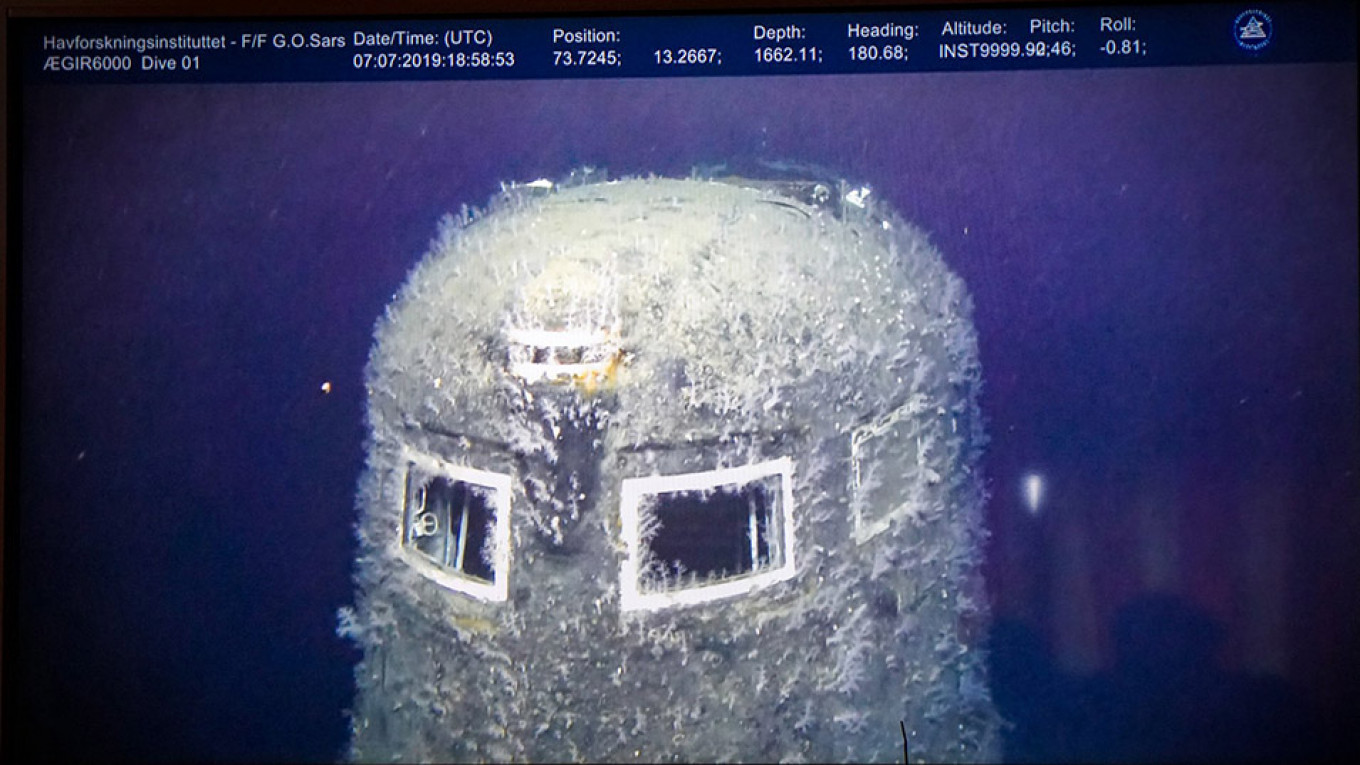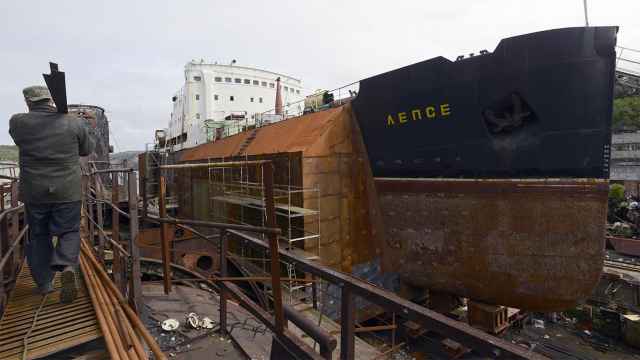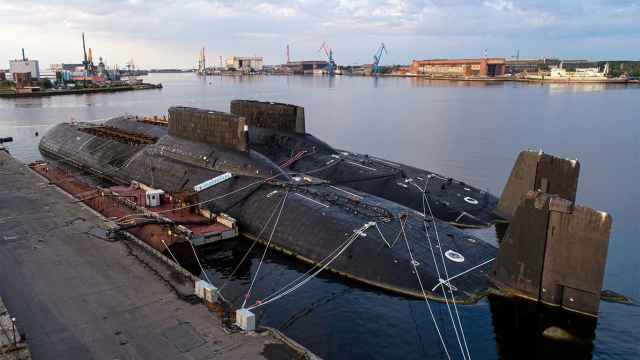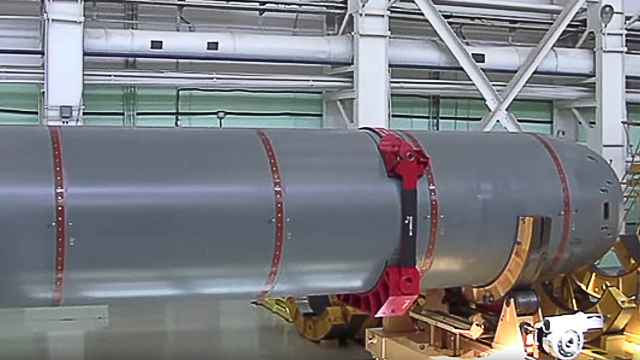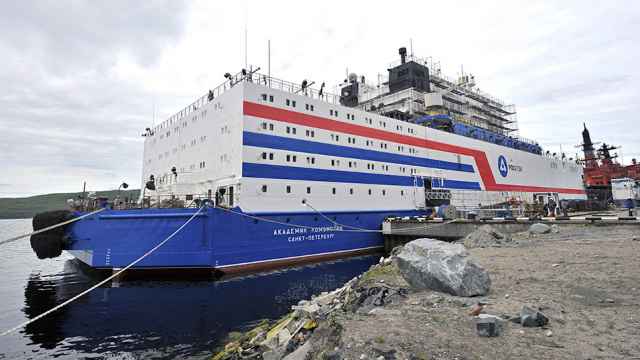Norwegian scientists have discovered radiation levels 100,000 times higher than normal near a Soviet-era nuclear submarine that sank 30 years ago in the Arctic, Norway’s TV2 broadcaster reported Tuesday.
The Komsomolets sank in a section of the Barents Sea considered to be one of the world's largest fishing areas in 1989, killing 42 of its 69 crew. Concerns about contamination from its nuclear reactor have not yet given way to an actual environmental crisis, and readings taken as recently as 2008 have shown no indication of a radiation leak.
One of three seawater samples taken from the Komsomolets on Monday has returned radiation levels 100,000 times higher than normal seawater, TV2 reported.
The sample was reportedly collected near a ventilation hole that occasionally kicks up a mysterious cloud of dust. Scientists told TV2 that they believe this ventilation hole has direct contact with the reactor inside the wreck and that the pollution comes out in pulses as a result.
“The results are preliminary. We will examine the samples thoroughly when we get home,” Hilde Elise Heldal of the Norwegian Institute of Marine Research said.
Heldal says the radiation levels do not threaten fishing and probe-taking in the area.
The samples were taken as part of a joint Norwegian-Russian expedition that set sail from northern Norway on Saturday. Photos of the sunken submarine showed the rusty wreckage lying at a depth of 1,700 meters.
In the early 1990s and in 2007, Russian scientists measured small radioactive leaks at the Komsomolets from a pipe near the reactor compartment.
The experimental submarine featured two titanium hulls — one inside the other — to give the submarine the ability to dive deeper than any U.S. submarines.
A Message from The Moscow Times:
Dear readers,
We are facing unprecedented challenges. Russia's Prosecutor General's Office has designated The Moscow Times as an "undesirable" organization, criminalizing our work and putting our staff at risk of prosecution. This follows our earlier unjust labeling as a "foreign agent."
These actions are direct attempts to silence independent journalism in Russia. The authorities claim our work "discredits the decisions of the Russian leadership." We see things differently: we strive to provide accurate, unbiased reporting on Russia.
We, the journalists of The Moscow Times, refuse to be silenced. But to continue our work, we need your help.
Your support, no matter how small, makes a world of difference. If you can, please support us monthly starting from just $2. It's quick to set up, and every contribution makes a significant impact.
By supporting The Moscow Times, you're defending open, independent journalism in the face of repression. Thank you for standing with us.
Remind me later.


